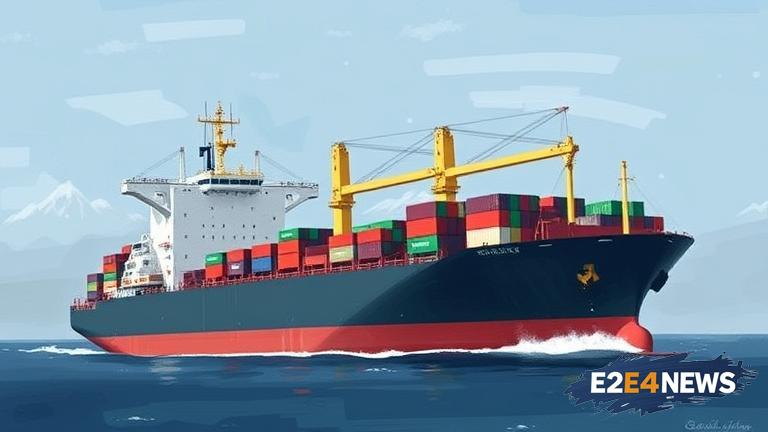The US Department of the Treasury’s Office of Foreign Assets Control (OFAC) has announced the imposition of significant new sanctions on Iran’s shipping network, in a move aimed at curtailing the country’s ability to export oil and import goods. The sanctions, which were unveiled on Friday, target a total of 16 entities and 10 individuals, including the Islamic Republic of Iran Shipping Lines (IRISL) and the National Iranian Tanker Company (NITC). The US government has accused these entities of playing a crucial role in Iran’s efforts to evade existing sanctions and continue to export oil to countries such as China and Syria. The sanctions also target a number of front companies and shell entities that the US claims have been used by Iran to disguise the true ownership and destination of its oil exports. In addition to the sanctions on IRISL and NITC, the US has also targeted a number of other entities, including the Iranian flag carrier, Iran Air, and the country’s largest port operator, the Shahid Rajaei Port and Container Terminal. The US government has accused these entities of providing support to Iran’s nuclear program and its military, including the Islamic Revolutionary Guard Corps (IRGC). The new sanctions are the latest in a series of measures taken by the US to pressure Iran into renegotiating the 2015 nuclear deal, which the US withdrew from in 2018. The US has been seeking to impose maximum pressure on Iran, including through the use of economic sanctions, in a bid to force the country to abandon its nuclear program and cease its support for militant groups in the region. The sanctions have had a significant impact on Iran’s economy, with the country’s oil exports plummeting and its currency, the rial, losing significant value against the US dollar. The Iranian government has responded to the sanctions by accusing the US of engaging in economic warfare and vowing to continue to resist the pressure. The US has also been working to build a coalition of countries to support its efforts to pressure Iran, including through the use of sanctions and other measures. The European Union, which has been seeking to preserve the nuclear deal, has expressed concern over the US sanctions and has urged the US to reconsider its approach. Despite the tensions, the US has continued to insist that it is open to negotiations with Iran, but only if the country is willing to meet its demands, including the abandonment of its nuclear program and the cessation of its support for militant groups. The sanctions on Iran’s shipping network are likely to have significant implications for the global economy, particularly in the shipping and insurance industries. The US has warned companies around the world that they will face penalties if they are found to be doing business with the targeted entities. The sanctions have also raised concerns about the potential for a further escalation of tensions between the US and Iran, which have been simmering for months. The US has been seeking to build up its military presence in the region, including through the deployment of additional troops and equipment to countries such as Saudi Arabia and the United Arab Emirates. The Iranian government has responded by vowing to take all necessary measures to defend its interests and protect its sovereignty. The situation remains highly volatile, with the potential for a further escalation of tensions in the coming weeks and months. The US sanctions on Iran’s shipping network are a significant development in the ongoing saga between the two countries, and are likely to have far-reaching implications for the global economy and the region as a whole. The US government has made it clear that it will continue to use all available tools to pressure Iran into meeting its demands, including through the use of economic sanctions and other measures. The Iranian government, on the other hand, has vowed to resist the pressure and to continue to defend its interests and protect its sovereignty. The situation remains highly uncertain, with the potential for a range of different outcomes in the coming weeks and months.
